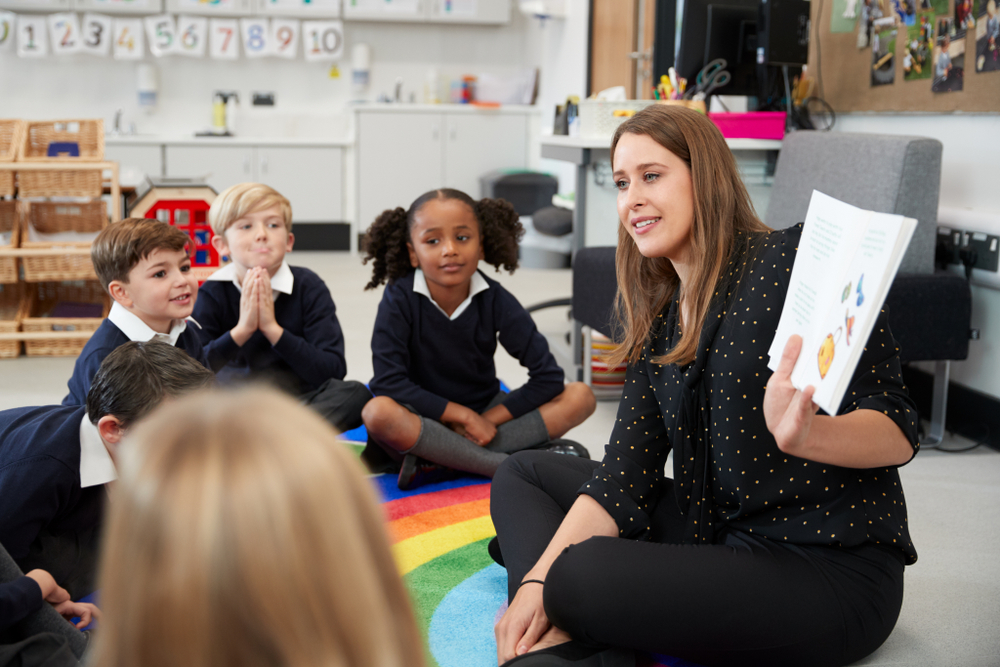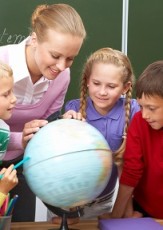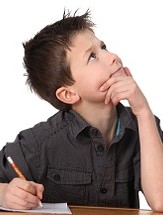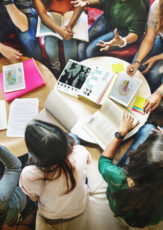
As the beginning of the school year unfolds and school-day routines fall back into place, some children might be having a harder time getting back into the swing of things than others. The long summer vacations that Americans enjoy offer much needed down-time, but unfortunately it’s also a time when the achievement gap between high and low-income students gets a little wider. Studies have shown that students from lower income families lose about two months of reading proficiency while their middle-class peers stay pretty much on course, presumably after being able to keep up with their skills through (often pricey) summer camps and classes.
“This is something that should not be a surprise to anyone,” says Terry Weeks, a former middle school teacher, and now a professor of Educational Leadership at Tennessee State University.
“Let’s say that two people wanted to become more fit and both took up an exercise regimen to achieve their goal. If one decided to suspend his or her workout during the summer, while the other continued the exercise program during that time, it would not be surprising to find the latter to be in better physical condition at the start of the fall season.”
It’s called the “summer slide,” and it’s not a recent phenomenon. The term was coined in 1906 by a math teacher from New York named William F. White. Since then, numerous studies have confirmed that lower-income children suffer the most from the slide.
One of the most comprehensive was first published in 2007 by the John Hopkins School of Education, which found that the summer slide wound up having long-term effects on graduation rates.John Hopkins University has a long history of activism and research in this field. In 1992 a student formed a summer program there for low-income children that ended up evolving into The National Summer Learning Association (NSLA), a non-profit whose mission is to close the achievement gap with engaging summer programming.
“We know that summer learning is a great way for folks to make significant changes in their communities,” said Monica Logan, VP of Systems and Programs at NSLA. “The question is, how?”
To get a better understanding of what your community can do to beat the summer slide, it could be a good idea to start by looking at some successful programs from this past summer. Each year the NSLA presents the New York Life Excellence in Summer Learning Award and the Founder’s Award to schools and organizations with exceptional summer programming.
This year the winners included Pittsburgh’s Public Schools, the Dallas area’s Project Transformation, Rochester City School District in New York, and the Chicago Public Library. Logan said that the only common thread between the programs was the quality of the educators, otherwise, they were completely diverse- tailored to each of the unique communities they served.
“One of the things we value about each of these programs is that folks didn’t use a one-size-fits-all approach to summer learning.” Instead, the programs excelled at addressing the specific needs of their particular cities or areas.
Chicago Public Library, for example, teamed up with the Museum of Science and Industry, Adler Planetarium, and Chicago public schools to engage 83,000 children to participate in a daily 20-minute STEM-based reading challenge. The large-scale partnership took into account a huge population that needed a digestible and inexpensive way to keep up with reading and comprehension skills. The partnership with the museum and planetarium was also a way of building community participation and getting more tactile or visual learners involved. Other programs used community service to get kids involved with their areas.
“Summer creates a space for not only parents, but communities to think of ways to engage students in new ways, different, fun and innovative ways,” said Logan, who thinks that summer should be a time for fun experimentation, rather than just a continuation of a normal curriculum.
“Making sure they return to school confident in their abilities as a learner is more than half the battle,” she said.
Now is the time to take note of how your students or children are re-adjusting to the classroom environment, and gauge whether the summer slide had a noticeable effect on them. Have they lost reading or math skills? Do they have new experiences to share with their classmates? It’s never too early to brainstorm about ways to engage kids during future vacations through community resources.
summer slide Kids Discover Kids Discover Online



